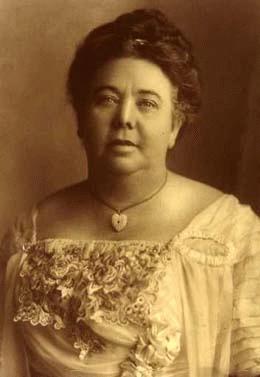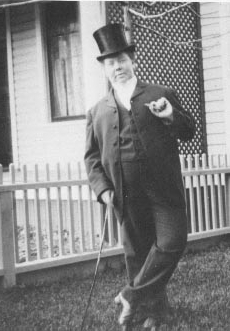May Arkwright Hutton facts for kids
Quick facts for kids
May Arkwright Hutton
|
|
|---|---|
 |
|
| Born |
May Arkwright
July 21, 1860 |
| Died | October 6, 1915 (aged 55) Spokane, Washington
|
| Nationality | American |
| Occupation | Suffragist, Labor activist |
May Arkwright Hutton (born July 21, 1860 – died October 6, 1915) was an important leader. She fought for women's right to vote (this is called suffrage). She also worked hard to improve conditions for workers (this is called labor rights). Her work was in the early days of the Pacific Northwest region of the United States.
Contents
Early Life and Moving West
May Arkwright Hutton was raised by her grandfather, Aza, in Ohio. Her grandfather was blind and loved going to political meetings. May often went with him, which probably sparked her interest in public issues.
In 1883, May moved to Idaho. She owned and ran a boarding house in a town called Kellogg. A boarding house is like a small hotel where people can rent rooms and often get meals.
Life in the Mining Towns
In 1887, May married Levi "Al" Hutton, who was one of her customers. They moved to Wallace, Idaho. May managed the dining hall at the Wallace Hotel. Her husband, Al, worked for the Northern Pacific Railroad.
May and Al were part of a group of miners who became very rich. They discovered a huge silver mine. This discovery changed their lives.
Standing Up for Miners
Al Hutton was involved in a conflict with mine owners. He was held in a place called the "bull pen." After he was released, May continued to speak out. She wrote letters to the Governor of Idaho and to newspapers. She wrote on behalf of the Western Federation of Miners, a group that supported workers' rights. May strongly believed in fairness for the miners.
In 1897, the Huttons invested in the very successful Hercules silver mine. This made them quite wealthy.
Political Efforts
May Hutton wanted to make a difference in politics. In 1904, she ran for the Idaho State Senate. However, she was not elected.
In her later years, May became ill with a kidney disease called Bright's disease. Even when she was sick, she continued to help others. She would travel in her car, a Thomas Flyer, to visit farming communities. She tried to help single mothers and their children stay together.
After May's death, Al Hutton started the Hutton Settlement orphanage in the Spokane Valley. He did this to honor her memory and her caring spirit.
Fighting for Workers' Rights
Both May and her husband, Al, were very active in movements to help workers. May wrote a book about the difficult conditions miners faced. The book was called The Coeur d'Alenes: or, A tale of the modern inquisition in Idaho. It talked about how badly mine owners treated workers. Later in her life, she bought back as many copies of her book as she could.
May Hutton also supported better working conditions for women. She believed women should work an eight-hour day and a six-day workweek.
Women's Right to Vote
May Hutton was a strong supporter of the women's suffrage movement in Idaho. This movement worked to give women the right to vote.
In 1906, the Huttons moved to Spokane, Washington. May joined the Spokane Equal Suffrage Club. She also became the first vice-president of the Washington Equal Suffrage Association. This group was led by Emma Smith DeVoe.
May became a well-known leader in the suffrage movement. She was very outspoken and had her own unique style. This was different from Emma Smith DeVoe, who was more moderate. Even with their differences, they worked towards the same goal. They successfully helped women in Washington gain the right to vote in 1910.
In 1912, May Hutton attended the Democratic National Convention. This showed her continued involvement in politics and her dedication to important causes.


